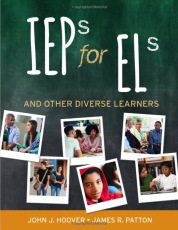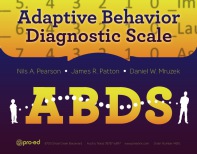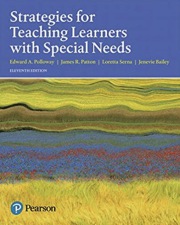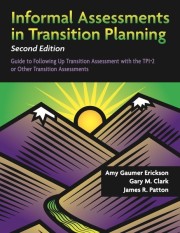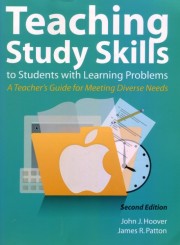
This book was conceived and developed with the purpose of providing guidelines for writing meaningful and comprehensive IEPs -- especially for students who are learning English and come from various cultural backgrounds. The chapters on writing present levels of academic achievement and functional performance (PLAAFP) and measureable annual goals (MAG) include specific elements that should be part of every PLAAFP and MAG that is written.
Copywright date: 2017
Publisher: Corwin Press
The Adaptive Behavior Diagnostic Scale (ABDS) is an interview-based rating scale that assesses the adaptive behavior of individuals between the ages of 2 through 21 years. The primary function of the ABDS is to establish the presence and the magnitude of adaptive behavior deficits. The ABDS scores are compatible with state and federal special education classification systems and consistent with the DSM-V and American Association on Intellectual and Developmental Disorders (AAIDD) definitions of intellectual disability. The ABDS may be used to assess the adaptive behavior of individuals with or suspected of having intellectual disability, autism spectrum disorder, learning disabilities, mental or behavioral health condition or other similar concerns.
Copyright Date: 2016
Publisher: PRO-ED
The Praeger International Handbook of Special Education presents a concise and clear overview of special education services in more than 70 countries across the world using the Article on Education in the United Nations Convention on the Rights of Persons with disabilities as the analytical frame. Each chapter offers information about the country in general, followed by sections on the public education system, the private education system, the special education system, teacher training requirements, and barriers to and promising trends in inclusive and special education. The volumes and chapters are organized by the United Nations Geoscheme, with Volume 1 including an overview of the volumes and chapters on countries in the Americas, Volume 2 addressing countries from Europe and Africa, and Volume 3 focusing on countries in Asia and Oceania.
Copyright date: 2017
The 11th edition of Strategies for Teaching Learners with Special Needs offers the most comprehensive look at how to teach students with mild/high incidence disabilities. Balancing elementary and secondary teaching strateigies, the text introduces critical areas of concern for special educators. This edition includes chapters on the following topics.
Strategies for Effective and Differential Instruction
Strategies for Classroom Management and Behavioral Support
Study Skills
Functional Academics
Career Develoment and Transition
Informal Assessments for Transition Planning is a resource that school-based personnel can use to determine or confirm transition strengths, preferences, interests, and needs for appropriate tranistion planning in the IEP. A highly practical and useful resource in the IEP tranistion planning process for:
Establishing some basic estimates of present levels of functional performance.
Providing a set of motivating and engaging activities for classroom or home use.
Documenting studnets' strengths, perferences, interests, and needs.
Teaching Study Skills to Students with Learning Problems is practical book for teaching 12 study skills to students. Includes the Study Skills Inventory (SSI) which can be used to target special study skills that need attention.
Study skills covered in the book include:
reading rate notetaking & outlining
listening report writing
graphic aids oral presentations
library usage time management
reference materials self-management
test taking organization
Address
James R Patton, Ed.D.
Department of Special Education
University of Texas at Austin
SZB 408A
Austin, TX 78712
Cell: 512.740.4082
UT: 512.475.6553
Email: jpatton91@me.com
or
patton.jim@mail.utexas.edu
Or use the online form.
Office Hours
I have regular office hours at the University of Texas at Austin during the Fall and Spring terms.
However, the best way to reach me is via email or text.
